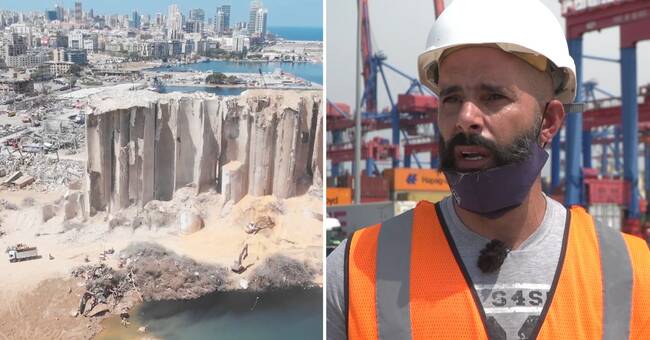In early August, 190 people were killed and a quarter of a million people became homeless when one of the most powerful explosions in world history shook Beirut.
The blast had its epicenter in the port of Beirut, which is a lifeline for Lebanon as the country imports 85 percent of all food.
Most used to come via the port.
But despite the disaster that devastated large parts of the city, traffic has resumed.
"Must find solution"
The dock worker Mohammed Rizk points to a container ship out at sea.
- As soon as a ship comes in, we start unloading the containers and loading them on board the trucks here, he says.
A few hundred meters away, the ruins of the country's only wheat silo rise.
Many Beirut residents thank Silo for their lives because it dampened the pressure wave when large amounts of high-explosive ammonium nitrate exploded on August 4.
Adjacent to the ruin is a 43 meter deep crater.
Of the port's warehouse buildings, only steel skeletons and gravel remain.
The devastation is difficult to absorb.
Bassem El Kaissi is the new head of the port after the previous head was arrested in the police investigation into the explosion.
He says that food imports are currently working, but he is worried about the thought of the autumn rains.
- We must find a solution so that we can protect the grain.
Maybe we can build temporary magazines, he says.
More explosives were found
The port of Beirut is notorious for the corruption that has prevailed here.
Despite warnings, 2,750 tonnes of ammonium nitrate could be stored in the port's reservoir for years, although authorities and responsible politicians were aware of the danger.
As recently as last week, 4 new tonnes of ammonium nitrate were discovered in containers in the port.
Port worker Bassam Bohassan lost three of his colleagues in the explosion on August 4.
For several days he searched the hospitals to find injured co-workers.
- The disaster took the lives of our colleagues and it affected us all.
We were like brothers.
But we still want to continue the work here, it is important for life to go on, he says.

